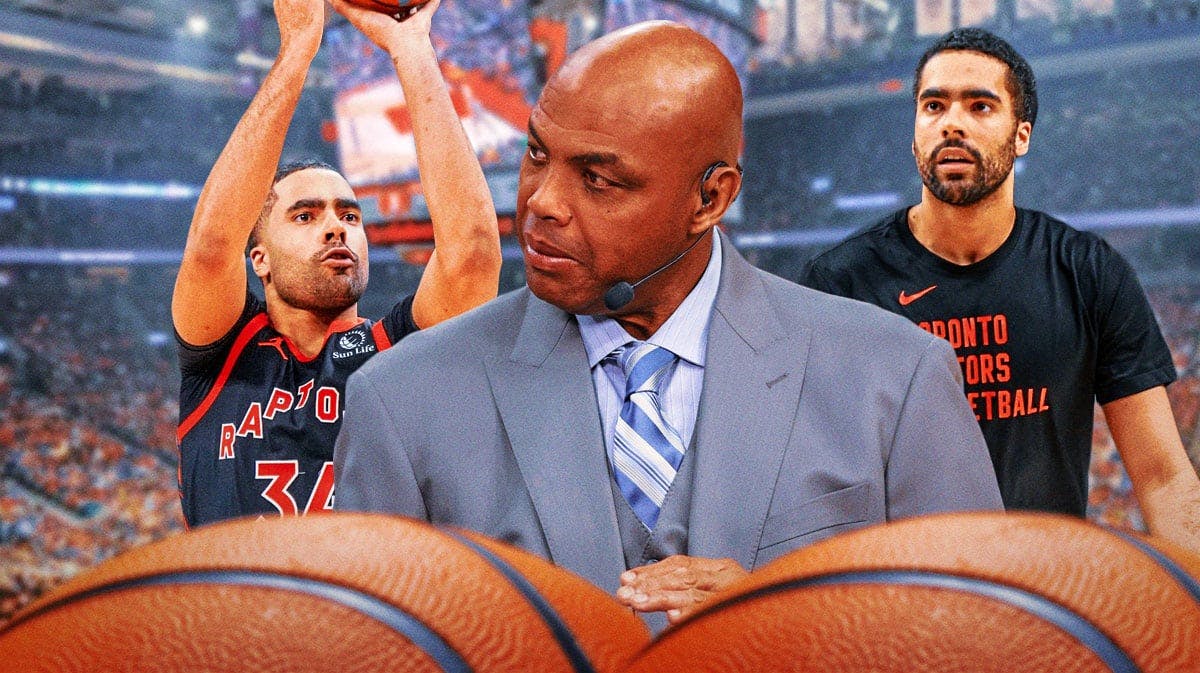The Jontay Porter gambling scandal seemingly came to a close on Thursday, when NBA Commissioner Adam Silver handed down a permanent ban for the Toronto Raptors reserve forward for committing what Silver called, “a cardinal sin,” according to David Aldridge of The Athletic.
Not only did Jontay Porter bet on the NBA, he bet on (or rather, against) himself and his own team, and relayed information to other bettors who followed Porter's guidance to make wagers. According to a player conduct memo reviewed by Mike Vorkunov of The Athletic, “NBA players cannot bet on the NBA, cannot manipulate or influence games — also known as game-fixing — or not performing to the best of their abilities for a reason related to betting.” Porter violated all of those rules that had been explicitly laid out by the league, so there should be no surprise about the ruling. However, that doesn't necessarily mean that everyone will agree with the severity of the punishment.
Consider former NBA MVP, current NBA analyst, and well-known gambler himself Charles Barkley one of those who thinks that keeping Jontay Porter out of the NBA for the rest of his life is a punishment that may be too severe. Barkley, who was appearing on Sirius XM NBA Radio, stated that while he understands why the NBA chose to ban Porter for life, he wishes that the 24-year-old Porter could've been given a second chance five years down the line.
Now those who oppose Charles Barkley's viewpoint would speak the same language that Adam Silver did when discussing the scandal. Silver stated, “There is nothing more important than protecting the integrity of NBA competition for our fans, our teams and everyone associated with our sport, which is why Jontay Porter’s blatant violations of our gaming rules are being met with the most severe punishment,” per Joe Vardon of The Athletic. Those who agree with Barkley would likely be quick to note, A) What Jontay Porter did was not a crime, and B) Multiple NBA players who have committed very serious crimes over the years have never been hit with a ban as hefty as this one. In fact, Porter is the first active player who was permanently banned from the league since 1954.
The NBA and Legalized Gambling
Jontay Porter has become the poster boy for the NBA's worst case scenario of legalized gambling — which, for the record, is a proposition that I support wholeheartedly and have ever since I gave a presentation on the matter as a senior in high school way back in 2010. But with that said, a situation like this one that is playing out before our very eyes has always been and will remain the primary argument of any detractor of such legislation. Of course, there is one simple solution for any NBA player who is inclined to make wagers on sporting events:
“I think it’s just simple: Just stay away from basketball stuff.”
Those are the words of Toronto Raptors forward Jordan Nwora, who shared this sentiment after a late-March loss to the Brooklyn Nets (h/t Eric Koreen of The Athletic), which came just days after the investigation into Jontay Porter. That's pretty simple, right? Evidently it's not so simple, because within just a few years of the U.S. Supreme Court ruling that any state could pass a law to legalize sports betting, at least one player that we know of has decided to take matters into their own hands and try to game the system in games that they were involved in.
The primary issue here, from an optics standpoint at least, is that the NBA remains business partners with DraftKings, FanDuel, and BetMGM, and will continue to no matter how many players they have to ban for defying the league's player conduct memo. The league is making so much money that it would likely take a large-scale, full-blown gambling operation to convince the NBA to cut ties with the sportsbooks that are making them so much money. In fact, right around the same time the Porter gambling scandal news broke, the NBA announced that they would be introducing betting into its streaming of game on NBA League Pass, allowing viewers to bet on point spreads, money lines, and over/unders for the games that are being played.
And just so it doesn't sound like the NBA is the only league this would apply to, the same goes for the NFL, MLB, PGA and NHL, all of who have, “vigorously pursued laws and business agreements with sportsbooks to earn money off the bets placed on their games.” (h/t Koreen of The Athletic). Over the past few years, a handful NFL players — including former All-Pro wide receiver Calvin Ridley — have received suspensions for betting on games, and not once did anyone suggest that maybe the NFL shouldn't be in business with sportsbooks anymore.
The irony of all of this isn't lost on me, and it's not lost on NBAPA vice president Garrett Temple, who is another teammate of Porter's who weighed in on the topic.
“It’s definitely awkward. You watch a game and you may see FanDuel or DraftKings as a big-time sponsor for a team,” Temple said (h/t Koreen of The Athletic). “Obviously it’s (against the rules) for us to do it in any regard, any type of professional basketball, resembling NBA, G League, WNBA. We understand that.”
Well, apparently not everybody understands it.
